
Kristina Killgrove
Kristina Killgrove is a staff writer at Live Science with a focus on archaeology and paleoanthropology news. Her articles have also appeared in venues such as Forbes, Smithsonian, and Mental Floss. Kristina holds a Ph.D. in biological anthropology and an M.A. in classical archaeology from the University of North Carolina, as well as a B.A. in Latin from the University of Virginia, and she was formerly a university professor and researcher. She has received awards from the Society for American Archaeology and the American Anthropological Association for her science writing.
Latest articles by Kristina Killgrove
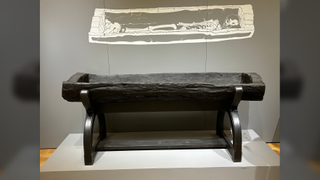
A coffin holding a dead 'princess' fell from an eroded cliff over 100 years ago — archaeologists just solved a major mystery about her
By Kristina Killgrove published
Dendrochronological analysis of a mysterious log coffin that tumbled from a cliff a century ago reveals clues to life in Roman-era Poland.
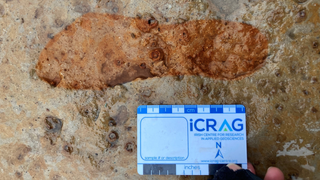
In a 'race against time,' archaeologists uncovered Roman-era footprints from a Scottish beach before the tide washed them away
By Kristina Killgrove published
Archaeologists raced against the tide to record a unique set of footprints made 2,000 years ago on a Scottish beach.
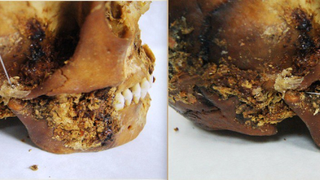
2,500-year-old 'primitive prosthetic' found on jaw of mummified Scythian woman who survived complex jaw surgery
By Kristina Killgrove published
Researchers used CT scans to peer inside a partially mummified skull and discovered the woman survived jaw surgery 2,500 years ago.
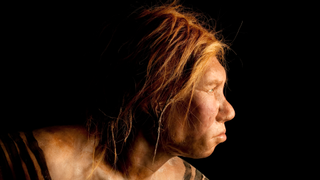
Research group claims preeclampsia doomed the Neanderthals, but experts say it's just a 'thought experiment'
By Kristina Killgrove published
Preeclampsia, a complication of pregnancy that involves high blood pressure, could have led to a decline in Neanderthals' fertility, a new study suggests.
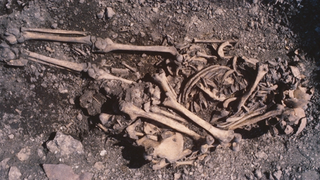
5,500 years ago, a teenage girl was buried with her father's bones on her chest, new DNA study reveals
By Kristina Killgrove published
A novel DNA analysis of skeletons excavated from a Neolithic hunter-gatherer cemetery in Sweden has revealed surprising family relationships.
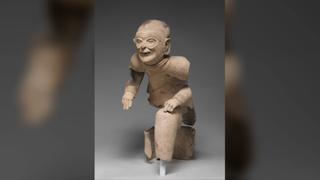
Tumaco-Tolita Seated Elder: This 2,000-year-old depiction of an aged man with wrinkles struck fear in people because it held 'the power'
By Kristina Killgrove published
Tumaco-Tolita artists were known for their intense realism in sculpting clay representations of humans.
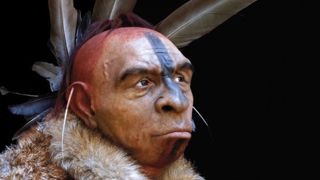
Did modern humans wipe out the Neanderthals? New evidence may finally provide answers.
By Kristina Killgrove published
A complex picture of how Neanderthals died out, and the role that modern humans played in their disappearance, is emerging.
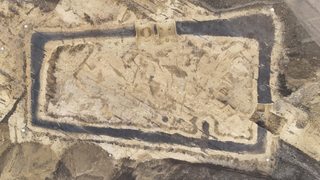
Subterranean tunnel, possibly used for medieval cult rituals, discovered in Stone Age tomb in Germany
By Kristina Killgrove published
A tunnel system discovered in a Stone Age tomb in Germany suggests medieval people created hiding places for their cultic rituals.
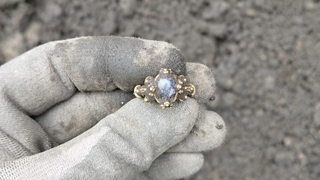
Medieval gold ring with dazzling blue gemstone discovered in Norway is a 'fantastically beautiful and rare specimen'
By Kristina Killgrove published
The delicate gold ring was made sometime in the Middle Ages and may have belonged to a high-status woman.
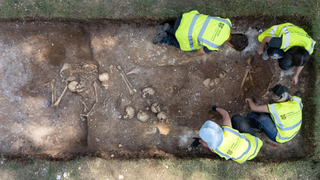
Viking Age mass grave holds mysterious mix of dismembered human remains and complete skeletons, including a 'giant' who'd had brain surgery
By Kristina Killgrove published
Archaeologists and student excavators uncovered a Viking Age pit full of dismembered remains near Cambridge, England.
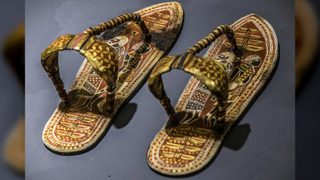
Sandals of Tutankhamun: 3,300-year-old footwear that let King Tut walk all over his enemies
By Kristina Killgrove published
Among the sandals discovered in Tut's tomb is a pair whose insoles were decorated with images of the boy king's enemies.
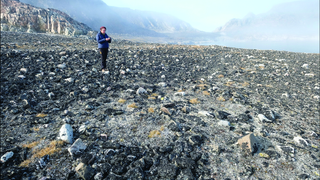
Paleo-Inuit people braved icy seas to reach remote Greenland islands 4,500 years ago, archaeologists discover
By Kristina Killgrove published
Archaeological remains on the Kitsissut islands off the coast of Greenland reveal that whole communities regularly journeyed across the dangerous Arctic waters.

'There's no reason to ban us from playing': Analysis debunks notion that transgender women have inherent physical advantages in sports
By Kristina Killgrove, Nicoletta Lanese published
A meta-analysis of 52 studies that included over 5,000 transgender people suggests that transgender women's physical fitness after hormone therapy is comparable to that of cisgender women.
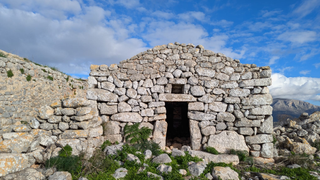
Remote region in Greece has one of the most genetically distinct populations in Europe
By Kristina Killgrove published
A genetic analysis of the Deep Maniots living in Greece's southern Peloponnese region has revealed a close-knit, patriarchal community with roots in the Bronze Age.
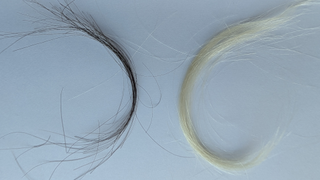
Preserved hair reveals just how bad lead exposure was in the 20th century
By Kristina Killgrove published
A new study reveals the dramatic decrease in lead exposure in the U.S. following the establishment of the Environmental Protection Agency 55 years ago.
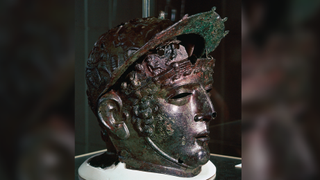
Ribchester Helmet: A rare 'face mask' helmet worn by a Roman cavalry officer 1,900 years ago
By Kristina Killgrove published
The helmet has been a powerful symbol of Roman Britain since it was discovered over 200 years ago.
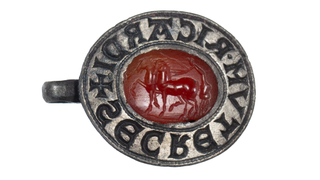
Rare medieval seal discovered in UK is inscribed with 'Richard's secret' and bears a Roman-period gemstone
By Kristina Killgrove published
The Gosfield seal is made of a medieval silver seal bezel surrounding an ancient Roman gemstone.
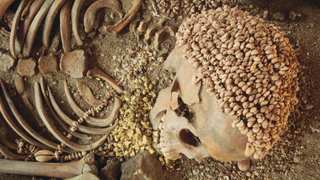
Stone Age teenager was mauled by a bear 28,000 years ago, skeletal analysis confirms
By Kristina Killgrove published
The mystery of a Stone Age teenager's death has been solved — 80 years after he was found in an ancient burial ground in Italy.

Romans used human feces as medicine 1,900 years ago — and used thyme to mask the smell
By Kristina Killgrove published
A new study shows that organic residues from a Roman-era glass medicinal vial came from human feces.
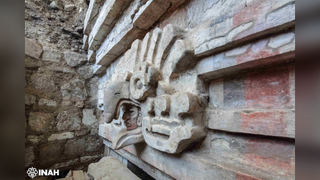
1,400-year-old Zapotec tomb discovered in Mexico features enormous owl sculpture symbolizing death
By Kristina Killgrove published
The president of Mexico called the discovery of a 1,400-year-old Zapotec tomb in Oaxaca the "most significant archaeological discovery in a decade."
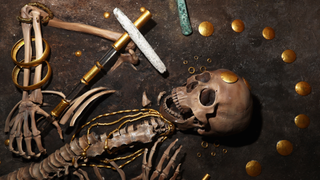
Varna Gold: Humanity's first gold jewelry was found in a cemetery with a gold 'penis sheath'
By Kristina Killgrove published
Archaeologists found hundreds of burials in the Copper Age cemetery in Varna, Bulgaria, some of which were littered with gold artifacts.
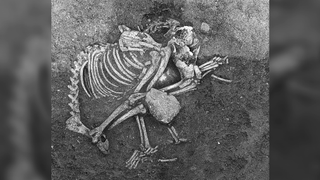
2,500 years ago, people in Bulgaria ate dog meat at feasts and as a delicacy, archaeological study finds
By Kristina Killgrove published
A study of dog bones across several Iron Age sites in Bulgaria has shown that people ate dog meat.
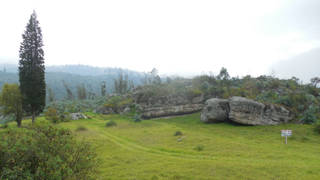
5,500-year-old human skeleton discovered in Colombia holds the oldest evidence yet that syphilis came from the Americas
By Kristina Killgrove published
An ancient DNA analysis of a 5,500-year-old human skeleton reveals that an ancestor of the bacterium that causes syphilis was present in the Americas at least 3,000 years earlier than previously thought.
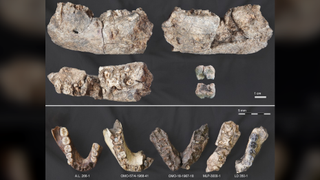
2.6 million-year-old jaw from extinct 'Nutcracker Man' is found where we didn't expect it
By Kristina Killgrove published
A fossil jaw of a distant human relative was discovered much farther north than previously thought possible, revealing new information about diversity in human evolution.

Remnants of spills on Renaissance-era textbook reveal recipes for 'curing' ailments with lizard heads and human feces
By Kristina Killgrove published
A novel biochemical analysis of a Renaissance medical text has successfully recovered centuries-old proteins that might be from lizards and hippos.
Get the world’s most fascinating discoveries delivered straight to your inbox.
